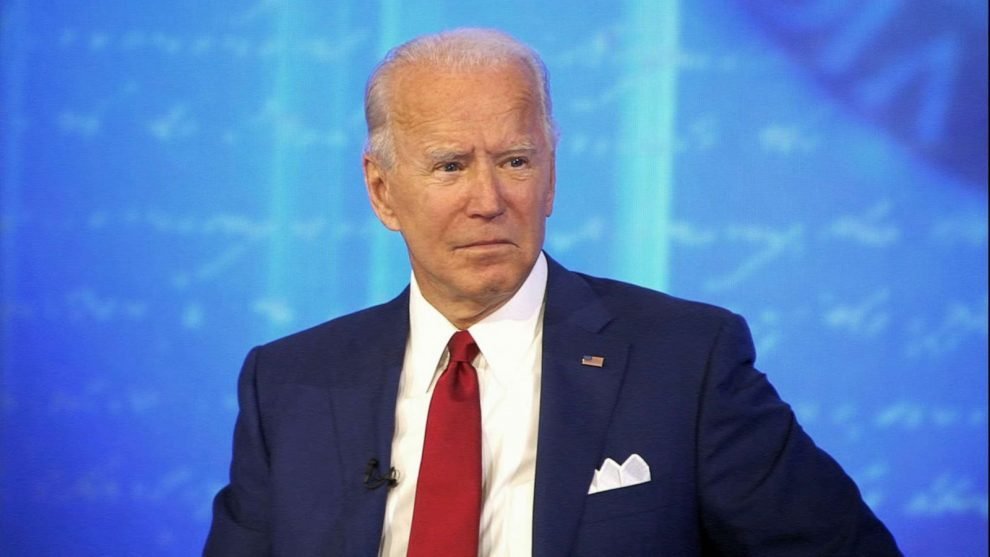President Biden will probably face a reckoning after the Nov. 8 midterm elections, when Democrats seem likely to lose control of one, or both, houses of Congress. If that takes place, Democrats will want to know why did it happen? Whose fault was it? And how do we make sure it doesn’t happen again?
If there’s one single reason Biden’s approval rating is a low 43%—which foretells a midterm setback—it’s inflation. Especially the cost of gasoline at the pump.
Biden’s net approval rating flipped from positive to negative last summer, as inflation was pushing through 5% on its way to a peak of 9% earlier this year. There were other factors—especially the ugly pullout of US troops from Afghanistan last year—but Biden’s approval rating has sunk nearly in lockstep with rising prices.
The most obvious form of inflation is rising gasoline and energy prices, if only because gas prices are advertised so visibly, like a proxy for the health of the entire economy. Biden is especially vulnerable to high energy prices because of his overt hostility toward oil and gas. This makes his trash-talking of the fossil-fuel industry the most self-defeating element of his tenure as president, so far. In other words: it doesn’t help to put the spotlight on rising fuel prices.
It wasn’t always that way. When Biden ran for president in 2020, energy prices were at decade lows, due to the collapse of demand during the Covid pandemic. The average oil price in 2020 was $39 a barrel, well below the break-even price for many producers. The average price for gasoline was $2.26 per gallon, 24% lower than the average of the prior decade. Energy was cheap, but it was also subsidized by overproduction and hundreds of billions of dollars of losses in the oil and gas industry, which was unsustainable.
Nobody in 2020 foresaw an energy crunch just two years into the future, or a Russian invasion of Ukraine, which would bring with it a parallel war in global energy markets. So Biden probably thought he was on safe ground when he said things at campaign events such as “I guarantee you, we’re going to end fossil fuels.” Trashing the fossil-fuel industry gave Biden credence with environmentalists and green-energy activists he considered a natural part of his constituency.
In reality, Biden’s actual policy views were less draconian.
Aides clarified that Biden favored getting rid of federal subsidies for fossil fuels, rather than fossil fuels themselves. Almost as a footnote, Biden would point out that, yes, he wanted to transition away from oil and gas, but he also knew that would take decades. Biden also insisted that he did not back the Green New Deal, a liberal plan for a massive overhaul of the energy and transportation industries.
There’s not much room for subtlety in politics, however, and Biden had generated plenty of sound bites for Republicans to use against him when energy prices soared.
Biden went further during his first days in office. He cancelled the federal permit for the Keystone XL pipeline that would have transported Canadian oil to US Gulf Coast refineries. The President also halted new oil and gas leases on public lands. Again, with gas prices at $2.50 per gallon when Biden took office, there was no reason to think he’d have some ‘splaining to do 18 months later, when prices doubled.
Biden, however, set a trap for himself, by waging a rhetorical war against fossil fuels just as they were becoming scarce—and politically precious. That’s because, in reality, his actual policies have had little effect on energy prices today. The fossil fuel subsidies Biden wanted to kill are still there, untouched by Congress. The Keystone XL pipeline might have brought more oil to the United States, but the refineries that turn oil into gasoline are chock full, with no extra capacity. So, the pipeline probably wouldn’t have brought down gas prices at all. The new leases Biden halted have no effect on current production, and 75% of oil drilling takes place on private land unaffected by Biden’s move. Meanwhile, the Biden administration has eased up on some oil and gas development rules.
The biggest factors pushing oil and gas prices up during the last 18 months involve the economics of the energy industry, rather than any government policy. Oil and gas profits were miserable during the decade prior to the Covid pandemic, largely because of overproduction. Then, demand collapsed in 2020, causing unprecedented losses. Energy firms cut capacity and began prioritizing profitability over growth. That continues, with many firms now choosing to funnel lush profits back to shareholders instead of using them to invest in new projects.
The Russia war, including widespread sanctions on the world’s third-largest oil and natural gas producer, have tightened energy markets further. Green-energy policies pushed by Biden and many other governments are a factor, too, mainly because investors have become reluctant to spend on oil and gas projects if the industry is destined to decline. But this affects future production far more than anything happening in 2022.
These details escape many voters, however. At least 40% believe Biden’s policies are the main cause of high energy prices. That’s not everybody, but it’s certainly enough to make a difference in tight elections, such as many midterm races next week, which will decide control of Congress. Biden’s association with high energy prices also gives Republican a consistent edge on the economy in polls, which could be another decisive difference in the midterms, especially among Independents not wedded to either party. If Democrats lose as expected, this is why.
Biden’s fealty to the green-energy cause makes it difficult for him to pull levers that might actually motivate energy firms to crank up production and lower costs, such as committing to longer-term permitting reforms. Biden doesn’t want a long-term increase in fossil-fuel production. He just wants enough new production now to bring prices back into the comfort zone.
He also wants voters to blame somebody else for high prices, and forget what he said about fossil fuels a couple of years ago.












